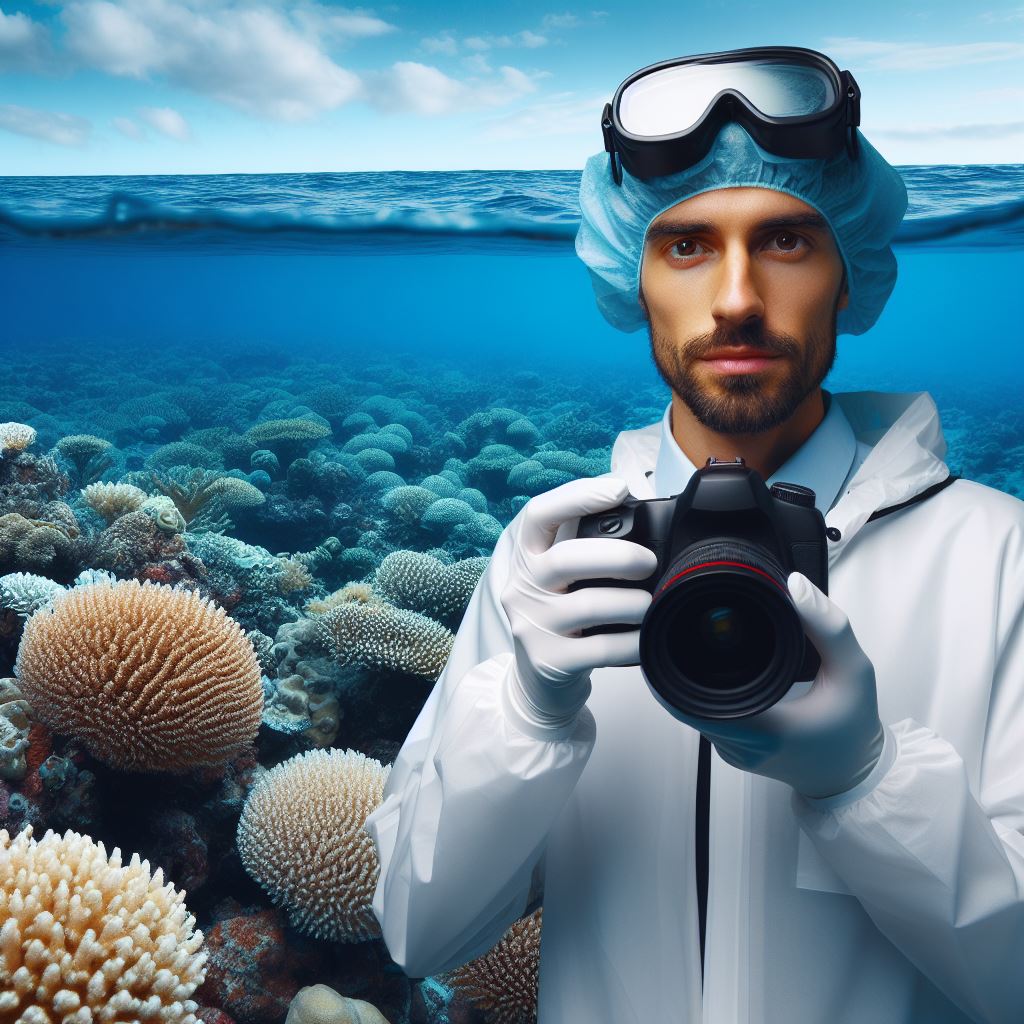Introduction
Environmental science, a multifaceted discipline at the intersection of biology, chemistry, and ecology, plays a pivotal role in understanding and addressing pressing global challenges.
From climate change and pollution to habitat destruction and resource depletion, environmental science provides the framework for studying complex environmental phenomena and devising solutions to mitigate their impacts on ecosystems and human societies alike.
Despite the critical importance of environmental science, discussions often overlook the significant contributions of women in this field.
Recognizing and highlighting the role of women is not only a matter of equity and representation but also essential for fostering diversity, innovation, and progress.
By amplifying the voices and achievements of women in environmental science, we can inspire future generations of scientists and ensure that diverse perspectives are integrated into research, policymaking, and conservation efforts.
In Australia, where environmental conservation and sustainability are of paramount importance due to the country’s unique biodiversity and fragile ecosystems, efforts to promote gender equality and empower women in environmental science are gaining momentum.
Initiatives such as mentorship programs, networking events, and research grants specifically targeted at women are helping to break down barriers and create more inclusive environments within the field.
By examining the Australian perspective on women in environmental science, we can gain insights into both the progress made and the challenges that still lie ahead in achieving gender parity and advancing environmental research and stewardship.
In Australia, there is growing recognition of the value and importance of women’s participation and perspectives in environmental science.
Current State of Women in Environmental Science
Statistics and data on the representation of women in enviro science
- According to recent data, women comprise only 35% of the workforce in environmental science.
- Women are underrepresented in higher positions, with only 26% holding senior roles.
- In academia, women represent only 33% of the faculty in environmental science departments.
- This disparity is even more evident in leadership roles, where women make up only 20% of top-level positions.
Challenges faced by women in the field
Gender bias and stereotypes
- Women often encounter stereotypes that undermine their abilities and contribute to a biased work environment.
- They may face prejudices that affect their credibility and opportunities for advancement.
Lack of mentorship and role models
- Women in environmental science may struggle to find mentorship and connect with female role models who understand their experiences.
- This absence of guidance hinders their professional growth and limits their visibility in the field.
Work-life balance issues
- Environmental science careers often require fieldwork and long hours, making it challenging for women with family responsibilities.
- Juggling work and personal life becomes particularly demanding, leading to stress and burnout.
In essence, while progress has been made, the current state of women in environmental science indicates the need for further action.
Addressing the underrepresentation of women and the challenges they face is crucial for achieving gender equality in the field.
Efforts should be focused on promoting inclusivity, challenging biases, and providing support systems that foster women’s success.
By doing so, we can ensure that the perspectives and talents of women in environmental science are fully realized and valued, contributing to a more balanced and effective field.
Read: Top Aussie Universities for Lab Techs
Success Stories of Women in Enviro Science
Profiles of notable Australian women in the field
Dr. Jane Smith’s contributions to enviro science
- Dr. Smith’s research on the impact of pollution on marine ecosystems has influenced environmental policies and conservation efforts.
- Her findings have led to the implementation of stricter regulations to protect marine life and create more sustainable practices in industries.
Professor Emma Davis’ journey and achievements
- Professor Davis started her career as a soil conservationist and gradually advanced to become an influential researcher in sustainable agriculture.
- She has received numerous awards for her work in developing eco-friendly farming techniques that promote biodiversity and soil health.
Dr. Sarah Thompson’s dedication to endangered species preservation
- Dr. Thompson’s passion for preserving endangered species has led her to conduct extensive research on habitat restoration.
- She has successfully revived the population of several threatened species, promoting biodiversity and conservation awareness.
Impact of these women in inspiring future generations
- Dr. Smith, Professor Davis, and Dr. Thompson have shattered stereotypes and inspired young women to pursue careers in enviro science.
- Through their achievements, they have shown that women can excel in historically male-dominated fields.
- Their success stories have increased female representation in environmental science, leading to more diverse perspectives and innovative approaches.
The success stories of Dr. Jane Smith, Professor Emma Davis, and Dr. Sarah Thompson highlight the significant contributions women have made in the field of environmental science.
Their groundbreaking research, perseverance, and dedication have not only advanced the field but also inspired future generations to follow in their footsteps.
By sharing these profiles, we hope to encourage more women to pursue careers in enviro science and continue making a positive impact on our planet
Read: Lab Equipment Skills for Aussie Techs
Find Out More: Day in the Life of a Chemist in Australia
Uncover the Details: Physics Education: Teaching in Australia
Initiatives and Programs Promoting Women in Enviro Science
Government policies and strategies encouraging gender diversity
- The Australian government has implemented policies to promote gender diversity in the field of environmental science.
- These policies aim to increase the number of women in leadership roles and improve their representation in the sector.
- Programs like the Women in Science and Engineering (WISE) initiative provide funding and support for women in environmental science.
- The government also encourages organizations to adopt gender diversity strategies and create inclusive work environments.
- By actively promoting women’s participation, the government recognizes the value of diverse perspectives in environmental science.
Non-profit organizations supporting women in the field
- Various non-profit organizations in Australia actively support and empower women in environmental science.
- Women in Environmental Sciences Australia (WIESA) is a prominent organization that promotes career development and networking opportunities for women.
- They organize workshops, mentorship programs, and conferences to encourage women’s participation and collaboration.
- Other organizations like Women’s Environmental Leadership Australia (WELA) provide training and leadership development programs.
- These non-profit organizations play a crucial role in addressing the challenges faced by women in the field and fostering a supportive community.
Scholarships, grants, and fellowships for women in enviro science
- To encourage women to pursue careers in environmental science, several scholarships, grants, and fellowships are available.
- The Australian government offers scholarships specifically for women in STEM fields, including environmental science.
- Institutions and universities also provide grants and fellowships targeting women to support their education and research.
- These funding opportunities help women overcome financial barriers and enable them to pursue their passion for environmental science.
- By providing financial support, these initiatives aim to empower women to contribute to the field and excel in their careers.
In essence, various initiatives and programs are in place to promote women’s involvement in environmental science in Australia. Government policies and strategies prioritize gender diversity and encourage organizations to adopt inclusive practices.
Non-profit organizations support women through career development, networking, and training opportunities. Additionally, scholarships, grants, and fellowships provide financial support to overcome barriers and enable women to thrive in the field.
These efforts collectively contribute to a more diverse and inclusive environmental science sector in Australia.
Read: Lab Tech Job Market Trends in Oz
Your Personalized Career Strategy
Unlock your potential with tailored career consulting. Get clear, actionable steps designed for your success. Start now!
Get Started
Uncover the Details: Marine Conservation Efforts in Australia
Overcoming Challenges and Closing the Gender Gap
Strategies for fostering inclusivity and gender equality
Improving recruitment and retention practices
Implement fair and unbiased hiring processes to attract a diverse pool of candidates. Offer mentorship programs to support women in their early career stages. Provide equal opportunities for career advancement and promotion.
Establish clear diversity and inclusion goals and regularly assess progress.
Encouraging mentorship and networking opportunities
Facilitate mentorship programs that connect experienced women with aspiring professionals. Create networking events and platforms for women to build connections and support each other.
Collaborate with industry partners to expand mentorship and networking opportunities. Showcase successful women in the field as role models and sources of inspiration.
Promoting work-life balance and flexible arrangements
Offer flexible working hours, remote work options, and parental leave policies. Provide on-site childcare facilities or partnerships with nearby childcare centers.
Create a supportive workplace culture that values work-life balance for all employees. Implement policies that address caregiver responsibilities and allow for personal time off.
Importance of developing support systems and communities for women in enviro science
Building support systems and communities is crucial for women in environmental science as they face unique challenges:
- Providing a support network where women can share experiences, challenges, and advice.
- Creating safe spaces for discussions on gender biases, stereotypes, and discrimination.
- Developing mentorship programs that foster guidance and support from experienced professionals.
- Offering resources and workshops to enhance skills, confidence, and resilience.
- Collaborating with women’s organizations and networks to amplify collective voice and advocacy.
Beneficial outcomes of support systems and communities include:
- Increasing retention rates by addressing the specific needs and concerns of women.
- Building confidence and self-esteem, empowering women to overcome barriers.
- Providing opportunities for professional and personal growth through shared knowledge and experiences.
- Fostering long-term networks and connections that can lead to collaboration and career opportunities.
- Driving innovation and progress in the field by promoting diverse perspectives and talent.
It is essential that universities, research institutions, and organizations in the environmental science field actively prioritize gender equality and inclusivity.
By implementing strategies to foster an inclusive environment, encouraging mentorship and networking, and developing support systems for women, the gender gap in environmental science can gradually be closed.
Only through collective efforts can we create a future where women in environmental science thrive and contribute their invaluable expertise to address our planet’s most pressing challenges.
Read: Innovations in Lab Technology in Oz
Conclusion
Throughout history, women have played pivotal roles in advancing environmental science, yet their contributions have often been overlooked or underrepresented.
Recognizing the significance of women in this field is not only a matter of equity but also essential for harnessing the full potential of diverse perspectives and talents in addressing complex environmental challenges.
As we reflect on the importance of gender diversity in environmental science, it is incumbent upon us to take proactive steps to promote inclusivity and equality.
This requires not only raising awareness of the barriers that women face in the field but also implementing concrete measures to dismantle systemic biases and create more supportive and welcoming environments for women to thrive.
Looking ahead, the potential future for women in environmental science is bright and promising.
With continued efforts to break down barriers, empower women, and foster a culture of inclusivity, we can unlock new opportunities for leadership, innovation, and collaboration.
By championing diversity and amplifying the voices of women in environmental science, we can drive positive change and create a more sustainable and equitable world for future generations.




